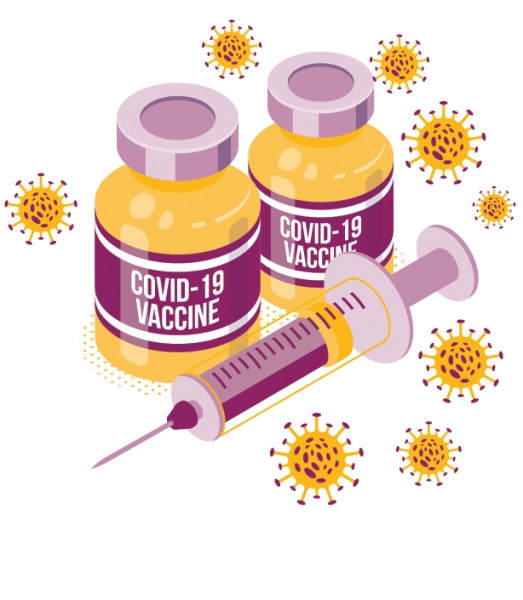Why Are There COVID Mutations and What Can We Expect Going Forward?
Jiann-Ping Hsu College of Public Health

Why are there COVID mutations and what can we expect going forward?
Viruses rely on host organisms to survive and reproduce. As they infect a host, they evolve because of tiny errors in the replication process. SARS-CoV-2, the virus that causes COVID-19 disease, is an RNA virus that has the ability to change every time it replicates due to imperfect proofreading mechanisms. These small changes are called mutations and sets of mutations are classified as a new variant when they create an important advantage for the pathogen.
So far in this pandemic, thousands of variants have been identified, but only four variants have been designated by the World Health Organization as ‘Variants of Concern.’ This label means the new variant is of public health significance due to an increase in transmissibility, an increase in virulence or a change in the clinical disease presentation, or a decrease in the effectiveness of public health or clinical measures currently in use to combat the virus. Currently designated Variants of Concern of SARS-CoV-2 include those known as Alpha, Beta, Gamma, and Delta [and as of publication time, Omicron].
Current research indicates the Delta variant is comparatively the most transmissible and potentially the most virulent variant we have seen on a large-scale thus far in the pandemic. Understanding viral evolution and the factors that give rise to mutations is an important part of anticipating what may come next in this pandemic.
Thankfully, all three of the COVID-19 vaccines (e.g. Moderna, Pfizer/BioNTech, and Janssen/Johnson & Johnson) authorized or approved for use in the United States continue to remain highly protective against severe disease caused by the major variants, but we never know how the virus may outsmart us next. Therefore, the best way to reduce the probability of a new variant is to limit virus replication and transmission through the mass vaccination of communities at home and abroad.
Simply put, viruses mutate when they replicate. SARS-CoV-2 is able to replicate in high numbers when people become infected. Because unvaccinated people are more likely to become infected, vaccination of the global population will be our best bet to prevent the rise of more variants in the future.
— Jessica Schwind, Ph.D., assistant professor in the Department of Biostatistics, Epidemiology and Environmental Health
